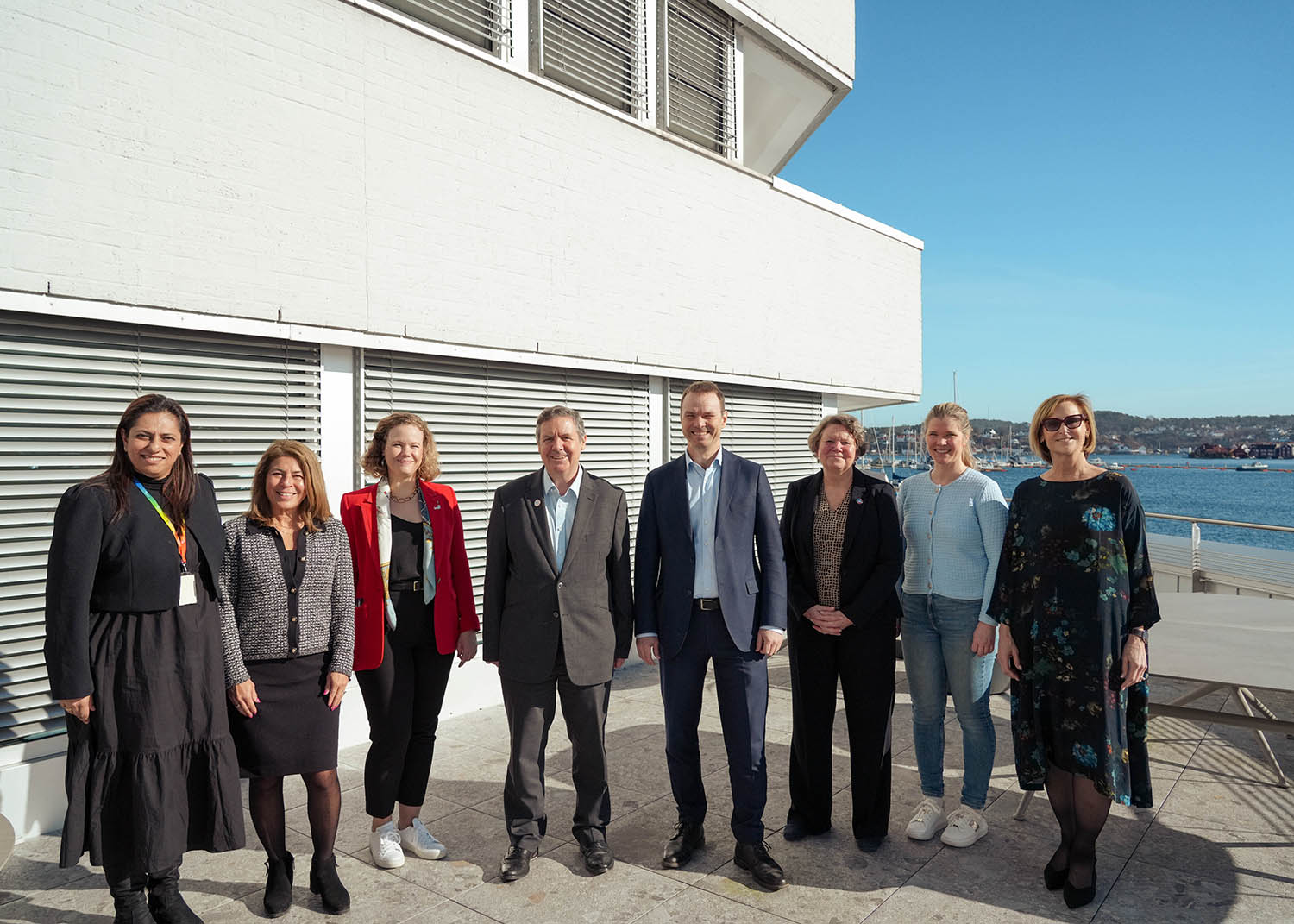The event featured prominent industry leaders, including Captain Karen Davies, Managing Director of OCIMF, Guy Platten, Secretary General of the International Chamber of Shipping, and Dr. Heike Deggim, Director of the IMO’s Marine Environment Division.
The program was moderated by Monica Kohli, OBE, President of WISTA UK and Senior Lawyer at Gard, with participation from WISTA Norway’s incoming and outgoing Presidents, Captain Jaquelyn Burton and Stine Mundal.
40 by 30 commitment
Reflecting on his career since joining Gard in 1997, Roppestad acknowledged that the industry has made progress when it comes to diversity and inclusion:
“When I joined the industry some 30 years ago, it was diverse in the sense that it was international and there was a breadth of different backgrounds represented. But we were probably doing better on educational and cultural diversity than we were on gender balance. We have come a long way, but we still have some work to do,” he added.
Gard’s workforce today is 56% female, while 39% of leadership positions are held by women. Last year, Gard signed the WISTA 40 by 30 pledge, committing to boosting female leadership to 40% by 2030.
“Diverse teams make better decisions — it’s a clear competitive advantage,” Roppestad emphasized.
The power of inclusion
Karen Davies shared her journey from ‘small-town’ beginnings to working as a cadet and eventually sailing on supertankers across the world. She described a male-dominated industry when she first started - and one where you needed to have ‘thick skin’ to get ahead.
“But it was also an environment of strong camaraderie, personal growth and exciting opportunities. That is probably the most important: giving people the opportunity and fostering inclusive environments where talent can thrive,” Davies said.
Dr. Heike Deggim, Director of the IMO’s Marine Environment Division, agreed:
“When I came into the industry some 40 years ago, working as a female seafarer was practically impossible. Things have improved a lot since then, but it is still a male-dominated industry. So, it is important to know when to take things in your stride, and when to draw a line and stand up for yourself,” she added.
Closing the gender gap
ICS Secretary General Guy Platten noted that women still make up only 2 per cent of the global seafaring workforce.
“We also know that in a short amount of time we will be 90 000 seafarers short of what we need. And with the green energy transition, it is estimated that some 800 000 seafarers globally will need additional training. We simply cannot solve these challenges if we don’t use the entire talent pool - we need to create an industry that is more open and inclusive.”
The panel explored ways to attract more women to maritime careers, including improving work-life balance, adjusting work rotations, and promoting the sector’s global opportunities.
Jaquelyn Burton highlighted the importance of involving men in diversity efforts, noting that WISTA Norway’s board now includes 30% male representation. “We can’t champion inclusion without being inclusive ourselves,” she said.
Roppestad closed the event by applauding Monica Kohli for her tireless work advancing diversity and inclusion at Gard and beyond. “Monica’s OBE is well-deserved — so thank you Monica, we are all very proud of you.”
About WISTA 40 by 30
- The Wista 40 by 30 pledge is an initiative to achieve 40% female leadership in the maritime industry by 2030. By signing the pledge, WISTA members and supporters commit to promoting gender diversity and inclusion in the maritime sector.
- According to IMO, women represent less than 2% of the world's seafarers. Women also account for only 16% of the shore-based maritime workforce and 12% of the senior management positions.
- WISTA, the Women's International Shipping and Trading Association, is a network of more than 4300 female professionals from 56 countries who work in the maritime industry.
Related reading:
UK honours senior Wista figure for diversity work | TradeWinds



